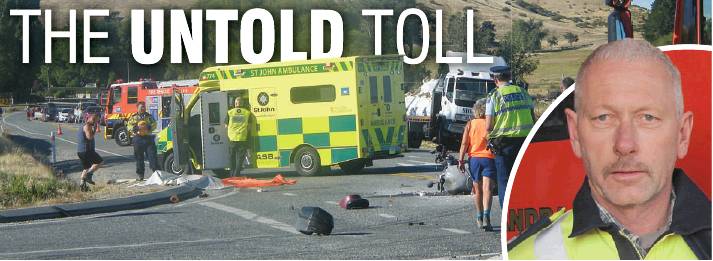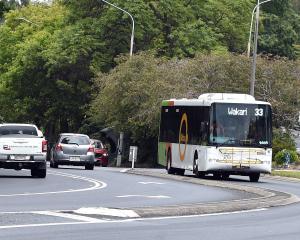
After three decades with emergency services, Russell Anderson has seen it all.
But for the Alexandra Volunteer Fire Brigade chief fire officer, the dread of attending a fatal motor vehicle accident never subsides.
So far this year 22 people have died on roads in the Southern district — the deadliest start to a year since 1996.
The volunteers in Alexandra have had a particularly tough time, attending three of the fatal crashes.
"It’s bad enough for the family involved, but it’s a ripple effect through the whole community that takes its toll," he said.
"Some people put on a fairly brave face but suffer a little underneath.
"Some people stack it up methodically and say ‘I have to do this for the family’."
Mr Anderson joined Fire and Emergency New Zealand as a volunteer in Port Chalmers almost 30 years ago, and served in the New Zealand Police.
During that time he had attended dozens of fatal accidents.
"I wouldn’t like to count them really — too many," he said.
"It’s one of those things you wish you didn’t have to do."
The support offered by Fire and Emergency New Zealand, and the other emergency services in New Zealand, helped to alleviate the burden.
But memories of the tragedies were never far from the surface.
"Even driving past the scene will trigger it," he said.
In a small community, such as Alexandra, the job of arriving first at the scene of a serious crash could be particularly difficult as the victims were often known to
brigade members.
"It’s a terrible job at times and it’s worse in a small community," he said.
"Historically, we have had firefighters go to motor vehicle accidents involving family members and they don’t knowuntil they arrive."
This year the Alexandra brigade was called to an incident in which a pedestrian died — that pedestrian turned out to be a colleague of one of the volunteers.
"That ripple effect went deep into our community," he said.
"That’s the reality of any tragedy."
The impact on the families of those involved also hit hard.
"It’s not just the day of the accident or the day of the funeral; it goes on and on and on," he said.
"Sometimes right up until the coronial process and for some there are questions that never get answered."
Despite the trauma and tragedy, he was committed to doing the best job possible for victims and their families.
"I can probably rattle off a few that I wish I wasn’t a part of, but you ... do your best because there’s a job that needs to be done and someone
has to do it," he said.
"We have all the equipment and training and processes to do it.
"I’m extremely proud of the work emergency services do."
The toughest thing was knowing many of the fatalities could have been prevented.
"We have all heard the police messages — wear your seatbelt, slow down and drive to the conditions — but people still go beyond," he said.
"They always think they are better; they can go faster.
"I know it’s a cliche, but you are better to take an extra minute than never get there at all."












